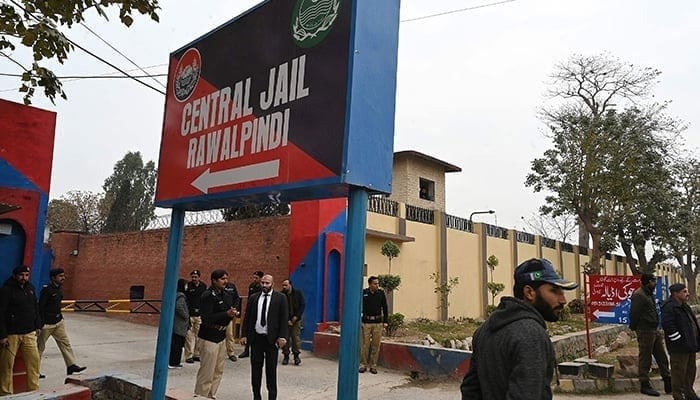Prison management is an essential pillar of any criminal justice system, directly tied to the effectiveness of crime prevention efforts and the correctional process. Efficient prison governance ensures that incarceration serves its dual purpose: punishing offenders and rehabilitating them for reintegration into society.
Unfortunately, Pakistan’s prison system faces grave challenges. According to the World Prison Brief 2024, Pakistan houses about 108,643 prisoners, including pre-trial detainees and remand prisoners, against an available capacity of 66,625 inmates. This reflects a staggering rise in prison population from 78,938 prisoners in 2000 to the current levels.
The overcrowding in Punjab’s prisons is a dire issue that demands urgent attention. With a staggering 67,266 inmates confined in 43 prisons designed for a capacity of only 37563, the situation is not just a humanitarian concern but also a potential threat to the criminal justice system’s functionality.
Take Central Jail Lahore, commissioned in 1965, as a glaring example. It houses 3,537 prisoners against its authorised capacity of 1,053 – more than three times its limit. Similarly, Central Prison Rawalpindi, built in 1986, accommodates 4,337 inmates despite having a capacity of just 1,994. The situation in Gujranwala Prison is no different, where 3,109 prisoners cram into a facility meant for 913.
Even older prisons, such as the Faisalabad District Prison, established in 1894, and the Sialkot District Prison, dating back to 1863, operate under severe strain. Faisalabad houses 2,162 inmates against its capacity of 853, while Sialkot holds 2,177 prisoners in a space designed for 722.
Sindh’s prisons reflect a similar deplorable situation, with 24,038 inmates housed in facilities built for just 13,938. The overcrowding is particularly severe in Karachi, where District Jail Malir, with a capacity for 2,200 inmates, currently holds 5,922 prisoners. Similarly, Central Jail Karachi, constructed in 1899 to accommodate 2,400 prisoners, is now housing 7,114 inmates. Hyderabad Central Jail, built in 1894, holds 2,375 prisoners against a capacity of 1,527, while smaller district jails, such as those in Shaheed Benazirabad, Badin and Shikarpur, are similarly overwhelmed.
Overcrowding in prisons leads to a host of problems, including congested barracks, poor diet, inadequate healthcare and unhygienic conditions. Many inmates experience psychological challenges also. The lack of rehabilitation programmes only exacerbates the situation, as inmates are left idle, vulnerable to forming criminal networks, and often emerge more hardened than before.
Disturbingly, prisons in Pakistan have become hubs for organised crime, with numerous instances of criminal activities being planned from within their walls. Notable examples include dacoit Ali Gohar Chandio orchestrating kidnappings from Sukkur Central Jail in the 1980s and the 1986 Sukkur jailbreak, which facilitated the escape of 34 high-profile criminals.
The 2017 Karachi jailbreak by two LeJ militants exposed the complicity of prison insiders and outside networks. Notorious dacoit Munir Indhar confined in District Jail Rahim Yar Khan is allegedly overseeing the unabated criminal activities by the Indhar gang of the Katcha area in Rahim Yar Khan. The infamous dacoit of southern Punjab, Chottu Mazari, in District jail Bahawalpur still influences the criminals of the Katcha of Rajanpur and Rahim Yar Khan districts of Punjab.
To address these challenges, a comprehensive reform strategy is essential. Immediate expansion and infrastructural improvement of prison networks all over the country is needed to address the staggering overcrowding in the jails. There ought to be segregation of hardened criminals from under-trial prisoners and those convicted of minor offences. Habitual criminals should be kept in separate units without any interaction with new inmates. The mingling of new offenders with hardcore criminals turns jails into nurseries of criminals. The spirit of prisons as correctional units to transform an offender or criminal into a law-abiding citizen should be ensured.
Free legal aid must be provided to those unable to afford representation under-trial inmates. The government must allocate adequate resources for skill development, vocational training, and educational programmes, collaborating with reputable universities through the Higher Education Commission to establish classes and libraries in prisons. Healthcare facilities must be improved by increasing medical staff, ensuring the availability of equipment, and decentralising the medical budget to avoid delays in treatment. Psychological counselling programmes for inmates are also urgently needed.
Without immediate reforms, Pakistan’s prison system risks further deterioration, undermining the criminal justice system and public safety. Overcrowding, lack of rehabilitation programmes, and the misuse of prisons as crime hubs not only fail to reform inmates but also perpetuate cycles of crime. Comprehensive and sustained efforts are needed to transform prisons into institutions of reformation, fostering a safer and more just society.
The writer is a senior superintendent of police in the Sindh Police.
This post was originally published on this site be sure to check out more of their content.







